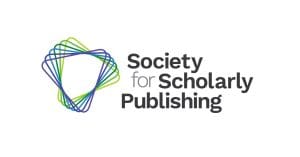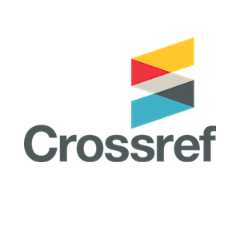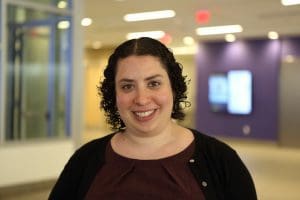November 26, 2019
By Jody Bailey
In its Strategic Plan for 2018–2023, the Library Publishing Coalition has a core goal of strengthening the community of library publishers. More specifically, objective 2.4 states that we will “build our support for and engagement with the international community of library publishers.” When the LPC Board of Directors started discussing this year what that support and engagement might look like, one of the ideas we landed on was increased attendance at international conferences (or U.S.-based conferences with many international attendees) since, after all, it is difficult to engage with people one does not know, and conferences are some of the best networking opportunities around. Until this point in LPC’s history, LPC Community Facilitator Melanie Schlosser had been attending all conferences where we felt an LPC presence would be beneficial, but with our goal to increase international engagement, a sole individual could not do it all. Therefore, the Board made the decision to begin sending Board members as representatives to select conferences with an international focus and an alignment with library publishing, and I was selected to attend the 41st Annual Meeting of the Society for Scholarly Publishing (SSP). The theme this year was “Shaping the New Status Quo: Global Perspectives in Scholarly Publishing,” so it met the goals of the LPC Board members to become more involved in conversations with scholarly publishing stakeholders beyond North America.
 I was excited to attend this conference for several reasons. First, I’m a long-time reader of the Scholarly Kitchen (SSP’s widely read official blog) who has been at times thrilled, frustrated, and downright angered by the views expressed by the SK “chefs” (regular blog contributors). Second, I’ve worked as a librarian for 10 years, focusing on scholarly communications for the past 4 years, so the conversations at SSP are squarely in my wheelhouse. Finally, before obtaining my MLIS, I worked in scholarly publishing for 10 years; therefore, I was looking forward to chatting with folks in that world again.
I was excited to attend this conference for several reasons. First, I’m a long-time reader of the Scholarly Kitchen (SSP’s widely read official blog) who has been at times thrilled, frustrated, and downright angered by the views expressed by the SK “chefs” (regular blog contributors). Second, I’ve worked as a librarian for 10 years, focusing on scholarly communications for the past 4 years, so the conversations at SSP are squarely in my wheelhouse. Finally, before obtaining my MLIS, I worked in scholarly publishing for 10 years; therefore, I was looking forward to chatting with folks in that world again.
What I discovered during the conference was surprising on many levels. Here are a few of the things that surprised me most.
Scholarly publishers and librarians working in scholarly communications have many, many common interests.
In fact, many of the people I met who work in scholarly publishing have the same primary goal as mine: a fully open environment for scholarly communications. Granted, some of these folks work for publishers that are already fully open, such as PLOS, but some do not. What everyone seemed to be focused on, however, was Plan S and how we are all going to get to an open access environment and still be able to keep subscription revenue–reliant businesses afloat. Yes, some of the big guys were there (Wiley, Taylor-Francis, Elsevier, etc.), but many (most?) of the attendees were from small to medium publishers who are just trying to figure out how to survive in a post–Plan S world.
SSP offers sessions of great interest to anyone working in scholarly communications, no matter their home base.
In the days leading up to the conference, I perused the program and was frankly surprised to see how many sessions were of interest to me. The Open Access Scholarly Publishers Association (OASPA) hosted a well-attended premeeting, “Fact or Fiction? OASPA Lifts the Lid on OA Publishing,” and my day started off on the right foot as I got to chat with a colleague working for Annual Reviews, an SSP Fellow from Nigeria, and another attendee from OCLC. The sessions to follow that day (all sponsored) and in the subsequent two days of the actual conference offered a cornucopia of topics; in fact, for almost every concurrent session, I had a really difficult time choosing which session to attend since for most time slots, a choice of six sessions was offered. Also of particular note were the two keynotes: one by Dr. Mariamawit Yeshak, a faculty member in pharmacognosy at Addis Ababa University, focusing on scholarly research and publishing in Africa; and the other by Betsy Beaumon, CEO and founder of Benetech, in which she discussed the role of technology in increasing equity and inclusion for people with disabilities.
Highlights of the conference included the following:
- A presentation from John Maxwell, Director, Publishing Studies Program, Simon Fraser University (who also presented at the Library Publishing Forum 2019), on his survey of open-source publishing tools (a full written report is now available);
- A panel on publishing expansive digital projects such as the Chinese Deathscape (from Stanford University Press) in which panelists discussed the bleeding-edge technology used to produce these projects and burning questions around how they will be preserved;
- A fascinating presentation on the progress of the pilot project to flip some Annual Reviews titles to open access in a “subscribe to open” formula in which subscribers are offered a small discount to make the title open—if enough agree, then the title will be open for that year.
- A panel discussion on strategies to move humanities publishers to open access with speakers from De Gruyter, Duke University Press, and the California Digital Library, as well as SK Chef (and librarian) Lisa Janicke Hinchliffe—panelists were still grappling with the question but thought that answers will be a mixed bag of transformative agreements (e.g., publish and read), subscribe to open, and platinum models (i.e., free to authors and to readers)—in fact Hinchliffe offered here that library publishing is a small but growing platinum option.
The conversations at SSP are not all about how to maximize profits in journal publishing.
I confess that I had a somewhat simplistic idea in my head of what scholarly publishers talk about these days, and it all revolved around money and how they could make more of it. What I found instead was a group of thoughtful professionals who are sincerely looking for a way forward into a fully open-access world. Most wholeheartedly agree that open access publishing has many positives; chief among them is increasing readership generally but also expanding access to critical research in parts of the world that currently cannot obtain it. As a scholarly communications librarian, I can certainly relate to this goal. Their desire to keep their businesses afloat may be different from academic librarians’ goals of ensuring that our libraries are perceived as vital to the work of our campuses, but we definitely share a passion for increased access to knowledge for the global community.
Jody Bailey
Head of Scholarly Communications Office, Emory University Libraries
Library Publishing Coalition Board of Directors, President-Elect





 I was excited to attend this conference for several reasons. First, I’m a long-time reader of the
I was excited to attend this conference for several reasons. First, I’m a long-time reader of the 